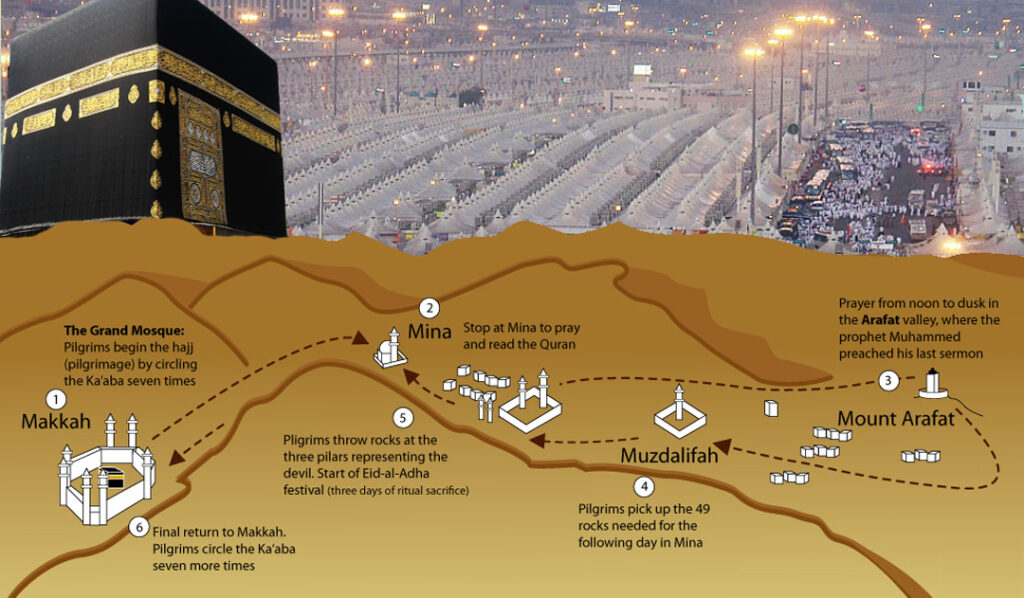Embarking on the sacred pilgrimage of Hajj is a transformative journey that holds profound significance for Muslims worldwide. It is a spiritual undertaking mandated by Islam, a journey of purification, reflection, and ultimate submission to the will of Allah. The teachings of Islam emphasize that the opportunity to perform Hajj should not be delayed or taken lightly, for it is a once-in-a-lifetime obligation for those who are physically and financially able. Indeed, the Quran states, “And pilgrimage to the House is a duty unto Allah for mankind, for him who can find a way thither” (3:97). This verse underscores the importance of prioritizing Hajj over worldly pursuits, reminding believers that no amount of wealth or success can outweigh the spiritual rewards of fulfilling this obligation.
In the pursuit of material wealth and worldly success, it is easy to become ensnared in the trappings of life and lose sight of our ultimate purpose. However, the pilgrimage to Mecca serves as a powerful reminder of our mortality and the fleeting nature of earthly possessions. The Prophet Muhammad (peace be upon him) emphasized the significance of Hajj, stating, “He who performs Hajj for Allah’s pleasure and does not have sexual relations with his wife, and does not do evil or sins then he will return (after Hajj free from all sins) as if he were born anew” (Bukhari, Muslim). This Hadith highlights the transformative potential of Hajj, symbolizing a spiritual rebirth and the opportunity for believers to cleanse themselves of sin and wrongdoing.
Moreover, the journey of Hajj is not merely a physical pilgrimage but a profound spiritual experience that fosters a deeper connection with Allah and fellow believers. It is a time of unity, as Muslims from diverse backgrounds come together in worship, transcending differences of nationality, ethnicity, and social status. The rituals of Hajj, from the Tawaf around the Kaaba to the stoning of the Jamarat, symbolize the universal principles of faith, sacrifice, and submission to the divine will.
Therefore, while the pursuit of wealth and success is a legitimate endeavor in Islam, it should never supersede the obligation of performing Hajj. The wealth accumulated in this world is temporary and transient, whereas the spiritual rewards of Hajj are everlasting. As the saying goes, “You can earn money after Hajj, but you can’t perform Hajj after you die.” Hence, believers are encouraged to prioritize their journey to Mecca, utilizing their savings and resources to fulfill this sacred duty as soon as possible. For in the end, it is not the wealth we amass but the deeds we perform in service to Allah that truly define our legacy.
Hajj Guidance Map






